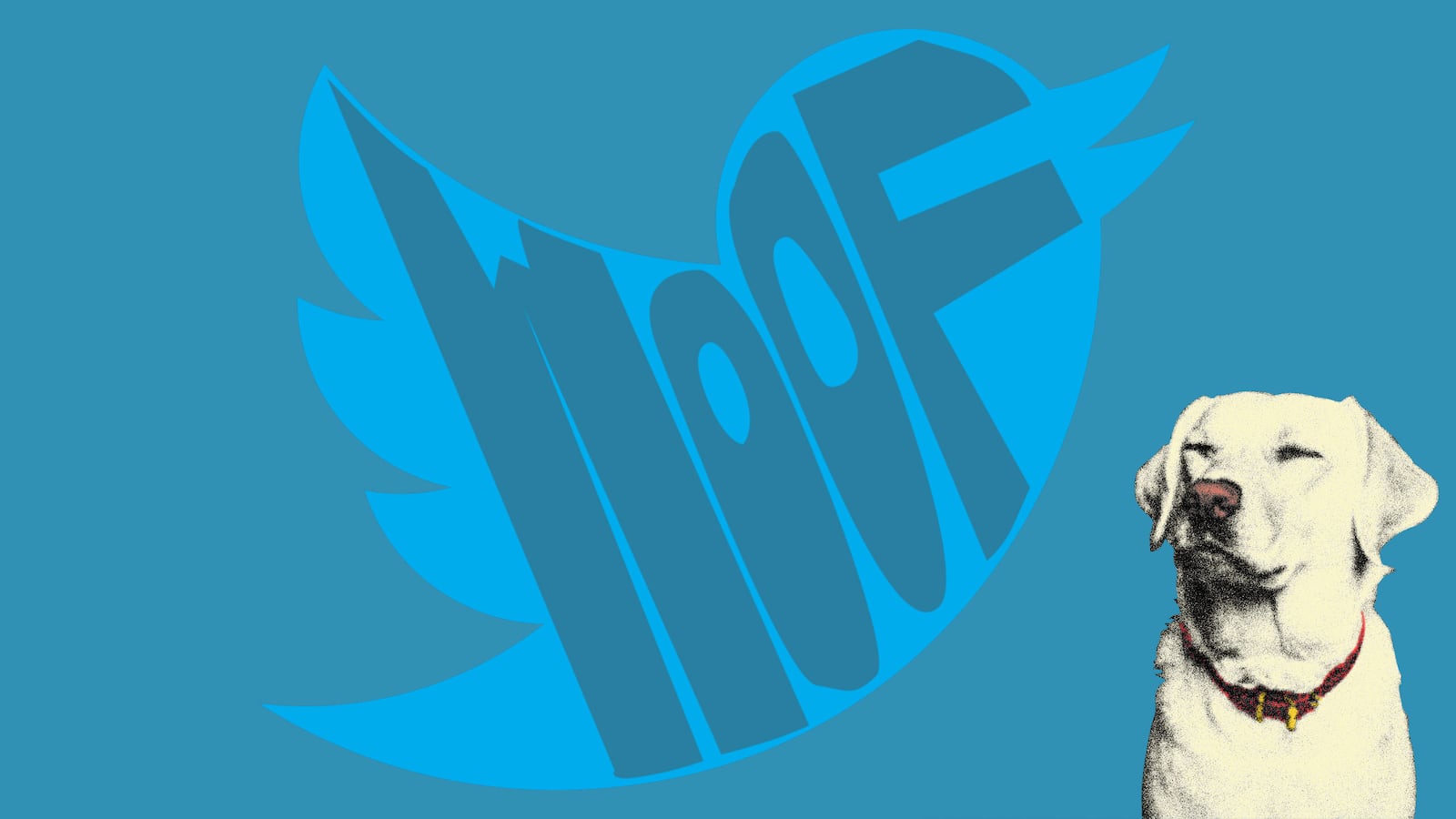In the world of high-concept, low-effort Twitter accounts, “@RacismDog” is one to watch. A racism-detecting dog that calls out racial dog whistles, the account has gained more than 500,000 Twitter followers since its launch in November.
If there’s a tweet about black teenagers needing to pull up their pants or immigrant children covering for drug traffickers, there’s a good chance @RacismDog will “bark” at it.
The account is run by two anonymous guys who identify themselves only as “B” and “G.” It came to prominence this spring, after the account went viral barking at right-wing media figures like Ben Shapiro, Roseanne Barr, and Infowars personality Paul Joseph Watson. The account has since spawned a host of imitators, from a homophobia-detecting dog to a “Horny Reply Goose,” which honks at “horny replies.”
But after an ill-considered tweet Tuesday angered the account’s followers and sent @RacismDog’s operators in search of offline “#selfcare,” fans wonder whether relying on two guys posing as a Labrador retriever on Twitter to call out racism was a good idea.
The controversy began when the account linked to an article about a black woman punching white bus passengers while saying “I hate white people.”
“Woof woof woof,” @RacismDog responded.
It looked at first like any other @RacismDog tweet. But the fact that the supposed racist in question was black woman prompted an outcry from @RacismDog’s followers. The alleged bus-puncher couldn’t be racist, they said, because racism involves systematic racial oppression—an issue not faced by white Americans.
@RacismDog, the critics said, was engaging in false equivalence—a point they often made through internet puppy language.
“No, doggo, this is prejudice not racism,” said one Twitter user.
“What’s ‘all lives matter’ in woof woof?” asked another.
In the face of the criticism, the men behind @RacismDog quickly deleted the tweet. Then, on a separate Twitter persona devoted to meta-commentary about the operation of @RacismDog, they tweeted that they were taking a break from posting on the mega-popular account.
“Running the account is emotional labor that we’re not cut out to do every day,” one tweet read. “#selfcare is important.”
The idea that writing “bark bark” several times a day amounted to a lot of pressure provoked further mockery, both from @RacismDog’s disillusioned fans and the account’s longstanding critics on the right. @RacismDog’s operators, who didn’t respond to requests for comment for this story, later claimed they were referring to pressure from threats made against them.
This isn’t the first time that popular dog-themed Twitter accounts have blundered into political trouble.
@dog_rates, a Twitter account that posts user-submitted pictures of dogs, then inevitably “rates” them positively and calls them “puppers,” last year offered to donate some of its merchandising profits from a Trump-themed “covfefe” hat to Planned Parenthood.
That sparked an outcry from dog-rating fans who oppose abortion rights, and were dismayed to find their favorite dog Twitter account taking a side in the abortion debate. When @dog_rates eventually apologized, that set off a whole new round of anger from abortion-rights activists, who felt that the dog-rating account was abandoning their cause.
Since the abortion flap, though, @dog_rates has tripled its number of followers, and its founder dropped out of college to manage the lucrative operation.
The lesson of that saga could be a positive one for @RacismDog embattled writers: The internet’s love of anything even vaguely dog-related can outlast political controversy.





